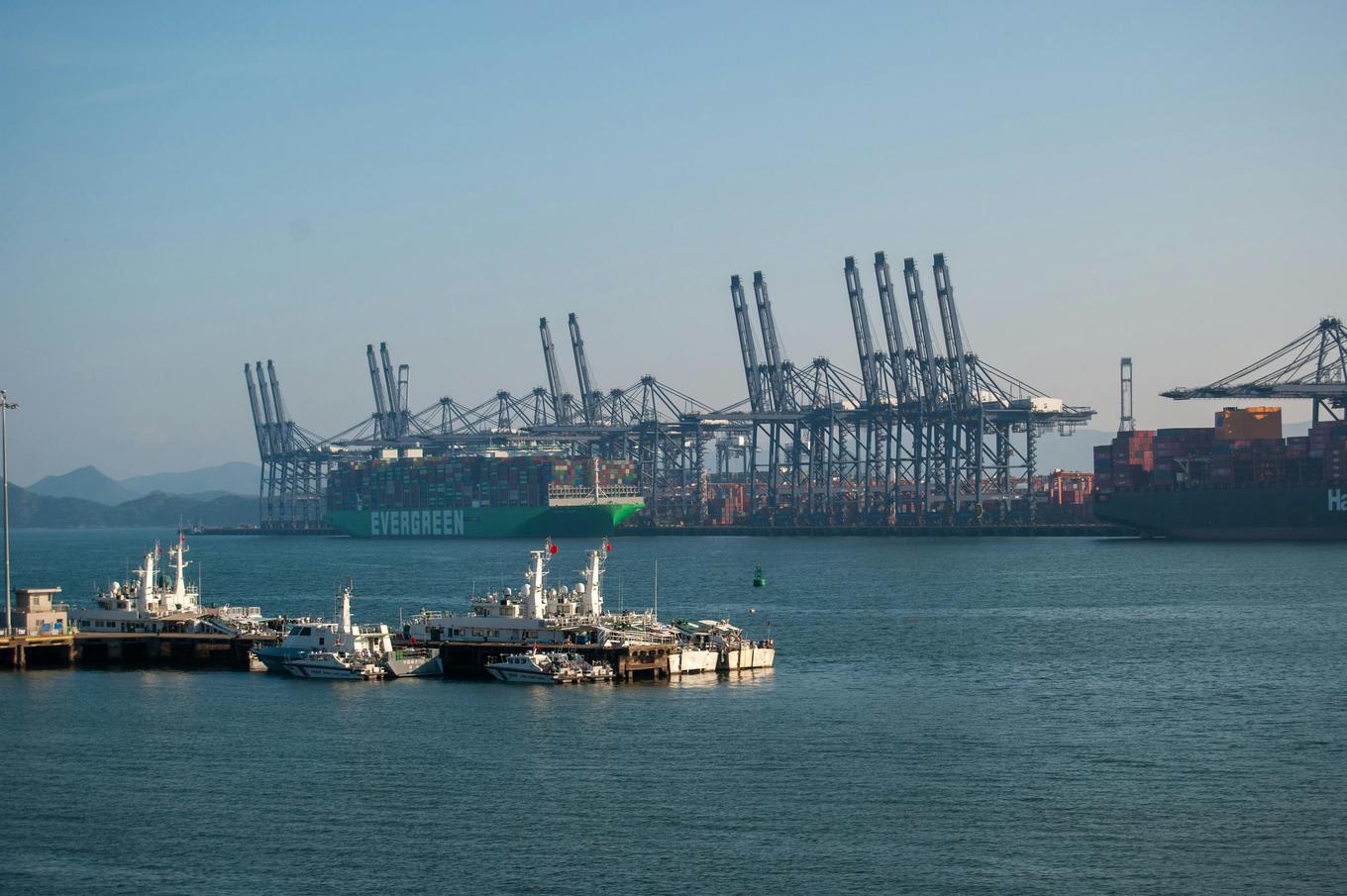- Shanghai Zhongshen International Trade Co., Ltd. - Two decades of trade agency expertise.
- Service Hotline: 139 1787 2118

Introduction: Opportunities in Importing Japanese Household Cleaning Tools
In todays increasingly active global trade, Japanese household cleaning tools have gained widespread popularity in international markets due to their exquisite designs and excellent quality. Importing these tools from Japan not only meets domestic consumers pursuit of high-quality living but also brings considerable business opportunities for merchants. However, the import process is not without challenges, involving documentation processing, logistics arrangements,FX Settlement Agencyand product certifications among other procedures. Below, we will provide a detailed analysis.
Professional document processing and logistics arrangements
Documentation Processing
When importing Japanese household cleaning tools, the first challenge is the complex documentation work. A commercial invoice is essential, as it records key information such as product descriptions, quantities, and values, serving as an important basis for customs to determine the value and classification of goods. The packing list provides a detailed enumeration of items in each package, facilitating customs inspections. The bill of lading, as proof of ownership, plays a crucial role in transportation and delivery.
Our company has extensive experience in documentation processing, enabling us to prepare various documents accurately and efficiently. We carefully verify each piece of information to ensure the documents match the actual goods, avoiding delays or fines due to documentation errors. For example, a client once imported a batch of Japanese cleaning brushes and faced potential higher tariffs due to a misunderstanding of the commodity code. Our professional documentation team conducted in-depth research into Japanese product descriptions and domestic customs coding rules, successfully securing a more appropriate code for the client and reducing import costs.
Logistics Arrangement
Logistics is a critical part of the import process. From Japan to domestic markets, common transportation methods includeMaritime TransportationandAir TransportationOcean freight is cost-effective and suitable for large-volume shipments but has relatively longer transit times. Air freight is faster, ideal for urgent restocking or high-value, small-volume goods, but comes at a higher cost.
When selecting ocean freight, we arrange shipping schedules based on the delivery timeline. We also maintain strong partnerships with major shipping companies to secure more favorable rates and stable cargo space. For fragile household cleaning tools, such as glass cleaners, we pay special attention to reinforced packaging to ensure the goods remain undamaged during long-distance transportation. For air freight, we coordinate airport pickup and customs clearance to ensure fast and safe delivery to clients.
Russian Market and VTB Settlement Advantages
Although the focus here is on importing Japanese household cleaning tools, the Russian market is also a significant part of our business. Russia, with its vast consumer potential, has high demand for household cleaning tools as well.
When conducting trade with Russia, foreign exchange settlement is a key step. VTB Bank holds an important position in Russias financial system. Using VTB for foreign exchange settlement offers several advantages. First, VTB has an extensive network in Russia, ensuring fast fund clearing. For example, when importing household cleaning tools, once the goods arrive at a Russian port, clear customs, and are delivered, we can quickly receive payment through VTB. Compared to other banks, VTBs fees are relatively lower, reducing trade costs. Additionally, VTBs trade background checks are more flexible, making the settlement process smoother as long as we provide authentic and valid trade documents.
Southeast Asian Marketimport and exportProcess and Solutions
Import Process
Importing household cleaning tools from Southeast Asia shares similarities with importing from Japan but also has some differences. The first step is procurement and contract signing. Before signing a contract, its essential to thoroughly assess the suppliers reputation and product quality in Southeast Asia through methods like on-site visits or third-party evaluation reports. The contract should clearly specify key terms such as product specifications, quantities, prices, delivery timelines, and payment methods.
Before shipment, product inspection is required. Different countries have varying inspection standards for household cleaning tools. For instance, some Southeast Asian countries may focus more on environmental indicators. We assist clients in preparing for inspections according to local requirements to ensure smooth clearance. Upon arrival at the port, timely customs declaration is necessary. Required documents include commercial invoices, packing lists, bills of lading,It is recommended to verify through the following methods:and other certificates. If the goods involve special regulatory conditions, such as certain chemical-containing cleaning products requiring specific licenses, we inform clients in advance and assist with the application.
Solutions
Given the characteristics of the Southeast Asian market, we offer tailored solutions. Due to relatively weaker logistics infrastructure in some Southeast Asian regions, we establish long-term partnerships with reliable local logistics providers to ensure timely and safe transportation. For documentation, considering language and cultural differences across Southeast Asian countries, we employ professional translators to accurately interpret requirements and avoid errors due to miscommunication. Additionally, for countries with potential trade risks, we help clients purchase export credit insurance to mitigate losses from issues like buyer rejection or payment delays.
Challenges and Opportunities in the Current International Trade Landscape
Challenges
The current complex and volatile international trade landscape presents numerous challenges for importing Japanese household cleaning tools. Rising trade protectionism may lead to higher tariffs or non-tariff barriers in some countries. For example, certain countries may impose strict environmental or safety certification requirements on imported cleaning tools, increasing the difficulty and cost of imports. Exchange rate fluctuations are another critical factor. Fluctuations in the Japanese yen directly impact import costs—if the yen appreciates, importers must pay more in local currency for the same goods. Additionally, the ongoing global pandemic has disrupted supply chains, causing soaring ocean freight costs and cargo space shortages, further increasing logistics costs and risks.
Opportunities
Despite these challenges, opportunities abound. The rapid growth of global e-commerce has expanded online sales channels, providing a broader platform for Japanese household cleaning tools to enter domestic markets. Consumers increasing demand for high-quality living continues to drive growth in demand for Japanese-brand cleaning tools. Meanwhile, countries are actively promoting the signing and implementation of free trade agreements, such as the Regional Comprehensive Economic Partnership (RCEP), which offers more favorable tariff policies and trade conditions for member countries, including Japan, helping reduce import costs and enhance market competitiveness.
Product certification services
When importing Japanese household cleaning tools, product certification is essential. Different tools may require different certifications. For example, electrical cleaning tools may need to comply with domestic3Ccertification standards to ensure product safety. For tools that come into contact with food, such as kitchen cleaning cloths, relevant food-contact material certifications may be required.
Although our company does not directly handle certification services, we leverage our expertise to inform clients of required certifications and assist in preparing necessary materials. We closely monitor changes in certification policies and promptly notify clients to ensure compliance with the latest requirements. For instance, when a country updates certification standards for certain cleaning products, we immediately interpret the new policies and guide clients on adjusting their products to meet the updated standards.
Conclusion
Importing Japanese household cleaning tools may face challenges due to the international trade environment, but by choosing a professionalforeign tradeagency likeZhongShen International Tradeand leveraging its strengths in documentation, logistics, foreign exchange settlement, and certification assistance, businesses can effectively navigate difficulties, seize market opportunities, and achieve their goals. We hope this article provides valuable insights for your import process.
Related Recommendations
? 2025. All Rights Reserved. Shanghai ICP No. 2023007705-2  PSB Record: Shanghai No.31011502009912
PSB Record: Shanghai No.31011502009912










